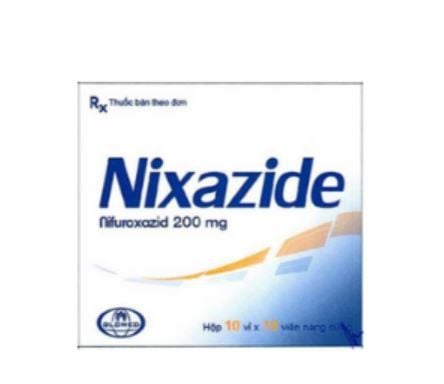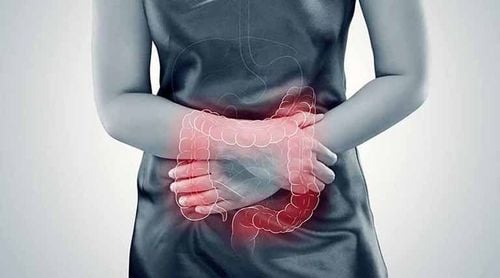This is an automatically translated article.
One of the most common diseases of the gastrointestinal tract is ulcerative colitis. People with ulcerative colitis often suffer from pain and a number of symptoms for a long time, making the patient feel extremely tired, have trouble sleeping, lose appetite. If this condition persists, the risk of developing cancer is quite high.
1. What is ulcerative colitis?
Ulcerative colitis (UC) is an inflammatory bowel disease that affects the digestive tract. Inflammation of the lining of the large intestine (also known as the colon), rectum, or both, causes ulcerative colitis.
Patients with ulcerative colitis have small ulcers and abscesses in the colon and rectum. The rectum is the last part of the colon and is located above the anus. The disease often has periodic flare-ups and bloody diarrhea. Patients may also experience abdominal pain, which is sometimes very severe, and anemia.
Periods of ulcerative colitis flare alternate with periods of remission. The disease seems to go away during remission. The inflammation usually begins in the rectum and then spreads to other sites of the colon. The degree of influence as well as the location of inflammation in each patient is different.
The disease affects all ages, all subjects, but the disease is usually diagnosed at the age of 15-35 years old. After the age of 50, the incidence is higher in men than in women.
Ulcerative colitis is a chronic condition. The goal of treatment is to reduce the inflammation that causes symptoms, to prevent flare-ups and a longer period of remission.
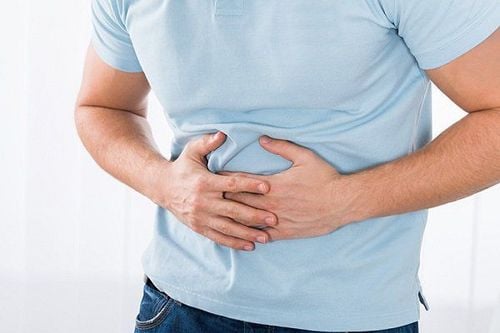
Viêm loét đại tràng gây tiêu chảy ra máu
2. When to have ulcerative colitis surgery
Your doctor will recommend surgery if the inflammation and ulcer cannot be controlled with medication or other treatments. If you have serious complications from chronic ulcerative colitis, such as severe bleeding... you will be advised to have surgery.
Some people with ulcerative colitis choose surgery as an effective treatment if the symptoms of the disease affect their daily activities as well as work.

Phẫu thuật viêm loét đại tràng được áp dụng khi không thể kiểm soát tình trạng viêm và loét bằng thuốc
3. Surgical method for ulcerative colitis
The only way to cure ulcerative colitis is surgical removal of the colon. Surgery is also done to eliminate the risk of colon cancer. Your risk of colon cancer is increased if you have had ulcerative colitis for 8 years or more or your colon has been damaged more often. Your doctor will also advise you to perform surgery if there are any abnormalities on examination.
The doctor will make an open incision or hole in the abdominal wall if the entire colon is removed. Then proceed to attach the bag and insert the tip of the small intestine through the opening. The waste will pass through and be placed in a bag that is attached to the air hole. You need to wear the bag often.
Currently, there is a newer surgical technique, called the ilial pouch anal anastomosis (IPAA). This technique does not create a permanent opening, but instead, the surgeon removes the colon and rectum, an inner pouch that will be created in the small intestine to act as a new rectum. This pouch will be linked to the anus.
Besides, there is another surgical method called controlled ileostomy (Kock bag). This method will be done if you want the outer pouch to be converted to an internal one or if you are not able to perform pelvic anal sac surgery (IPAA).
With this surgery, the doctor will remove the colon and from the small intestine will create a reservoir inside. Then proceed to open a hole in the abdominal wall and connect the bag to the skin with a valve. The patient will be catheterized through the valve into the internal reservoir when the bag is removed.
Several other techniques are also available today, however, all surgeries carry certain risks and complications. If surgery is indicated for ulcerative colitis, you should consult with your doctor to choose the best treatment for you.
Ulcerative colitis will be cured if the entire colon is removed. This will help the patient to stop the symptoms of the disease, such as bloody diarrhea, abdominal pain, anemia ...
It is estimated that about 5% of patients with ulcerative colitis will progress to cancer letters. Performing surgery to remove the threat of colon cancer is important for people with ulcerative colitis that affects the entire colon. The risk of non-surgical cancer can be as high as 32% in these cases, as opposed to ulcerative colitis that affects only the lower colon or rectum.
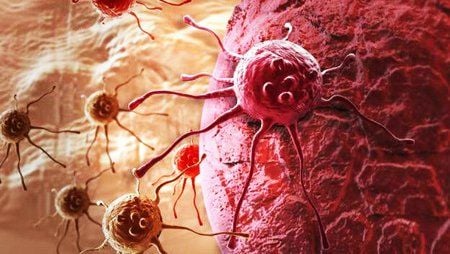
Phẫu thuật viêm loét đại tràng giúp loại bỏ nguy cơ ung thư ruột kết
4. Risk of complications after gastric ulcer surgery
Surgery to treat ulcerative colitis can cause some of the following complications:
Infection or inflammation of the pouch (inflammation of the pouch): Signs: Diarrhea, frequent bowel movements, stomach cramps, pain, fever, athritis. Treatment: take antibiotics. Intestinal obstruction: Signs: abdominal pain, nausea, vomiting. Treatment: IV fluids and fasting, if necessary surgery. Error when making bags: Signs: Fever, swelling, pain. Treatment: Surgery and permanent ileostomy.
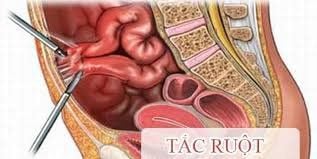
Tắc ruột có thể xảy ra sau phẫu thuật viêm loét dạ dày
Most UC surgeries can be arranged depending on the appropriate time period chosen by the patient. Surgery should be performed when symptoms of the disease are relieved to reduce the risk of complications. Ulcerative colitis surgery can help you control your bowel movements and minimize the disease's impact on your life.
Medications, dietary changes or surgery are the main treatments for ulcerative colitis. These methods will not cure the disease, except surgical removal of the entire colon and rectum, but they can help reduce the impact of disease symptoms.
The most important thing is that you need to treat ulcerative colitis as soon as symptoms appear. Regular health check-ups to monitor and control the disease in the best way.
Reference source: webmd.com





